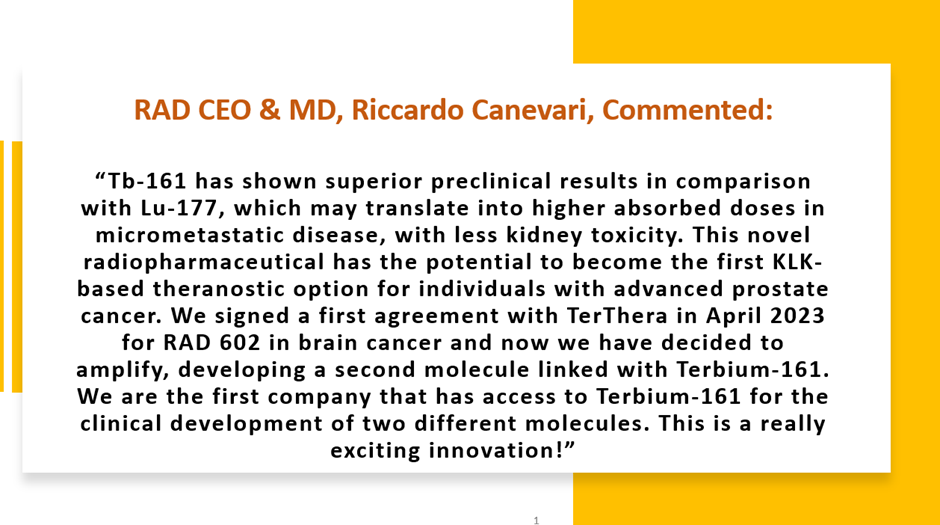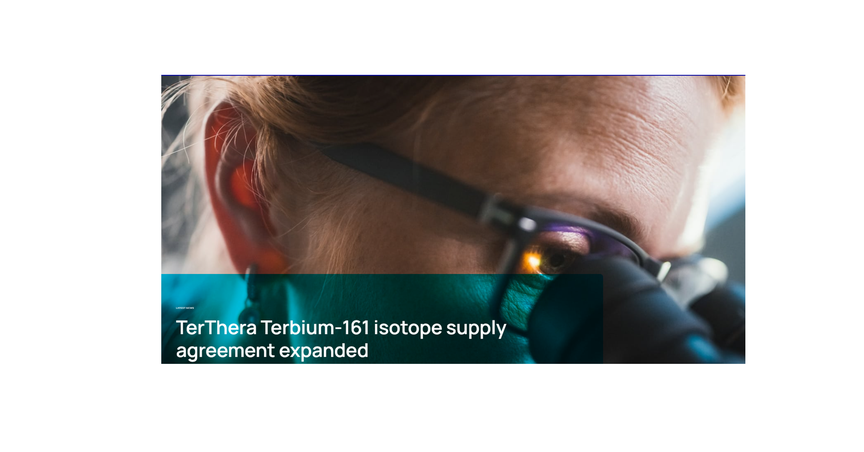Highlights
- Radiopharm has expanded a supply agreement with TerThera for Tb-161 isotope.
- The isotope will be linked to mAb to form RAD 402, a potential next-gen radiopharmaceutical being developed to treat advanced prostate cancer,
- During the second half of 2024, RAD plans to begin RAD 402 Phase I trial to examine its safety and efficacy.
Radiopharm Theranostics Limited (ASX: RAD) has expanded its supply agreement with TerThera for Terbium-161 (Tb-161).
Aimed at forming RAD 402, the isotope will be linked to a proprietary monoclonal antibody (mAb).
RAD 402 is a radiotherapeutic being developed to target KLK3 expression. KLK3 has limited expression in healthy tissue but has high expression in prostate cancer cells.
The company intends to begin a phase I dose escalating trial in 2H24. The study would focus engage advanced prostate cancer patients to assess the efficacy and safety of radiotherapeutic. RAD would own the data generated, as well as discoveries and inventions made from the clinical trial. The three-year deal can be extended for another two years and will be effective from 28 August 2023. During 4Q23, the initial order with TerThera is anticipated.
RAD shares jump 5.6%
Following the update, RAD share price jumped by 5.68% to trade at AU$0.093 apiece at the time of writing early morning 24 August 2023.

More about Tb-161
Tb-161 is an isotope designed for targeted cancer treatment. The isotope is highly promising because of its unique properties of radiation emitted, which comprises both short-range beta particles and Auger electrons.
RAD suggests that Tb-161 is potentially better than Lutetium-177 (Lu-177) as the Auger effect increases its efficacy and potency in destroying tumour cells selectively. Also, Tb-161 leaves surrounding healthy tissues largely unaffected.



_09_03_2024_01_03_36_873870.jpg)


